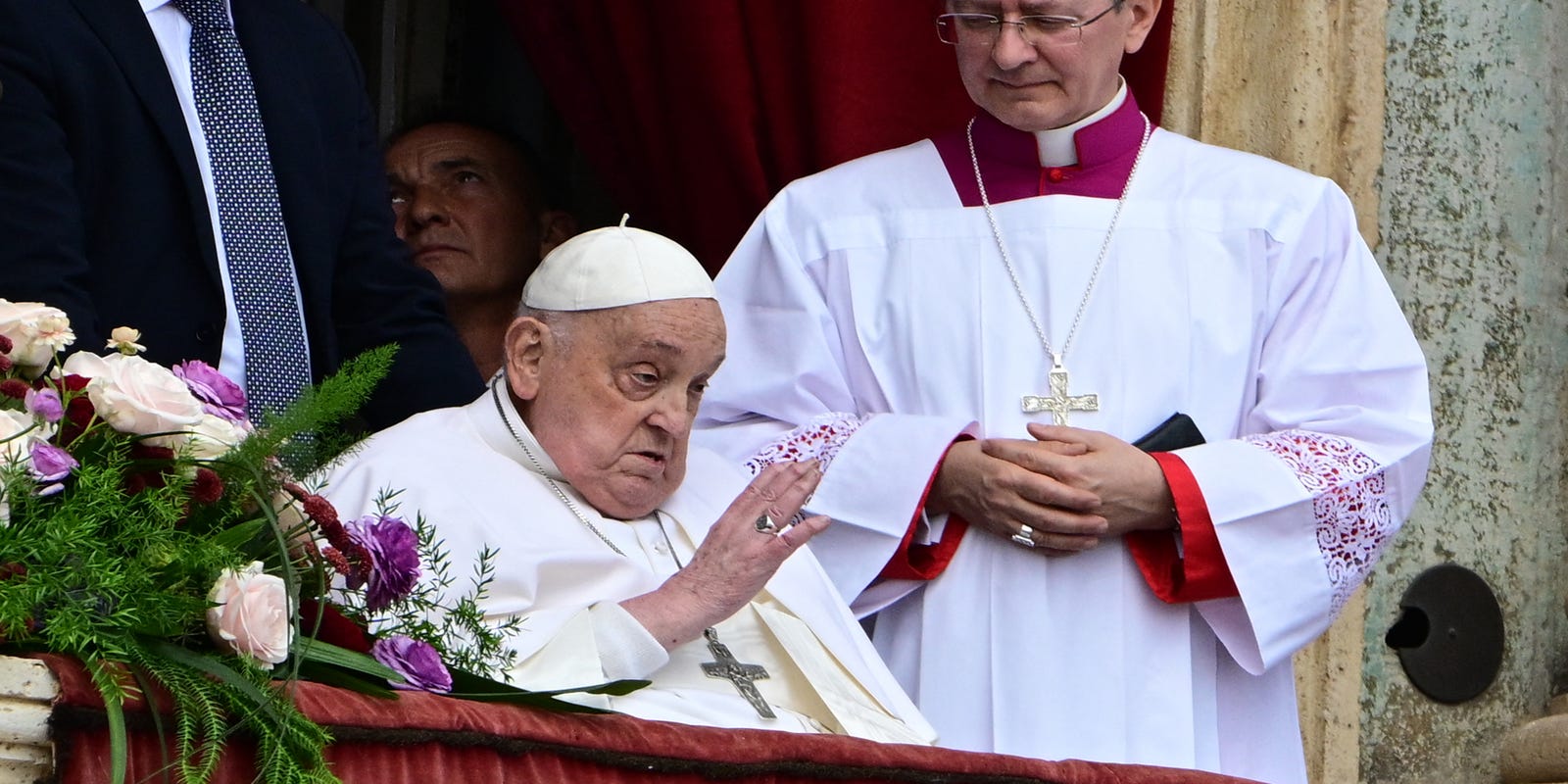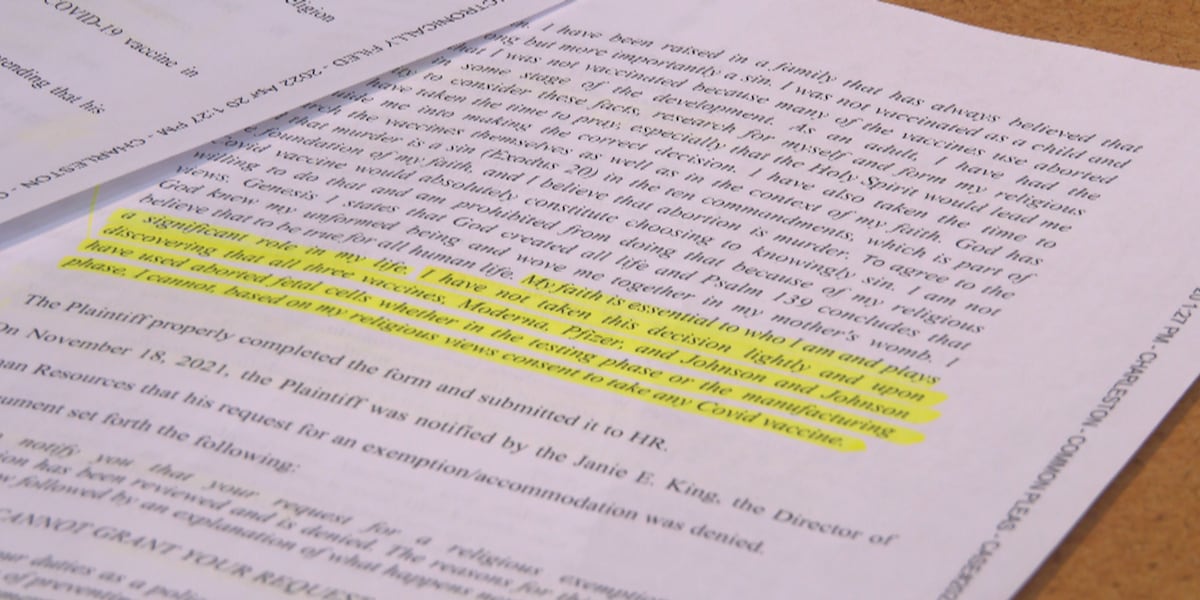Beyond Reason: Why Non-Believers Secretly Lean Towards the Divine
Religion
2025-03-28 15:58:34Content

In a fascinating twist of psychological research, a groundbreaking study published in the Proceedings of the National Academy of Sciences has uncovered a surprising cognitive phenomenon among atheists in highly secular societies. Despite their explicit rejection of religious beliefs, researchers found that these individuals may harbor an underlying, intuitive inclination towards religious thinking.
The study delves into the complex landscape of human belief systems, suggesting that even those who consciously identify as non-religious might possess deeply ingrained cognitive mechanisms that lean towards supernatural explanations. This unexpected finding challenges our understanding of belief formation and highlights the intricate nature of human cognitive processes.
By examining the mental patterns of atheists in some of the world's most secular countries, the research reveals a nuanced interplay between rational thought and intuitive reasoning. The results hint at a fundamental human tendency to seek meaning and explanatory frameworks that extend beyond purely materialistic interpretations of reality.
While the study does not imply a return to religious belief, it offers a compelling glimpse into the subtle psychological undercurrents that shape our understanding of existence, belief, and the human mind's remarkable complexity.
Unraveling the Spiritual Paradox: When Atheists Unconsciously Embrace Religious Intuition
In the complex landscape of human belief systems, a groundbreaking scientific investigation has emerged, challenging our fundamental understanding of religious and secular perspectives. This research delves into the intricate psychological mechanisms that underpin human cognitive processes, revealing surprising insights into how individuals perceive and interpret spiritual concepts, even when they consciously reject traditional religious frameworks.Challenging Preconceived Notions of Belief and Rationality
The Cognitive Landscape of Belief
Neuroscientific research has long been fascinated by the intricate workings of human cognition, particularly in understanding how individuals process abstract concepts of spirituality and existential meaning. Recent studies conducted in some of the world's most secular societies have uncovered a fascinating phenomenon: despite explicit rejection of religious doctrines, individuals demonstrate an underlying intuitive inclination towards supernatural explanations. The human brain, with its remarkable complexity, appears to possess deeply embedded cognitive mechanisms that predispose individuals to seek meaning beyond empirical observation. This inherent psychological tendency suggests that religious thinking might be more deeply rooted in our neural architecture than previously understood, transcending conscious ideological commitments.Psychological Underpinnings of Spiritual Intuition
Researchers employed sophisticated neuroimaging techniques and comprehensive psychological assessments to explore the subtle nuances of belief formation. Their findings reveal that even staunch atheists exhibit unconscious cognitive patterns that mirror religious thought processes, challenging the traditional dichotomy between religious and secular worldviews. These unconscious inclinations manifest through various psychological mechanisms, including pattern recognition, agency detection, and existential meaning-making. The brain's remarkable ability to construct narrative frameworks and seek explanatory models appears to operate independently of explicit philosophical positions, suggesting a more nuanced understanding of human cognitive architecture.Cross-Cultural Implications and Neurological Insights
The study's methodology involved participants from diverse cultural backgrounds, predominantly in regions characterized by high levels of secularization. Surprisingly, the research demonstrated remarkable consistency in cognitive responses across different demographic groups, indicating that these intuitive religious tendencies might represent a universal human characteristic rather than a culturally specific phenomenon. Neurological scans revealed fascinating activation patterns in brain regions associated with abstract reasoning and emotional processing. These findings suggest that spiritual intuition might be deeply embedded in our evolutionary neurological framework, potentially serving adaptive functions related to social cohesion, existential understanding, and psychological resilience.Philosophical and Epistemological Considerations
The research provocatively challenges established philosophical boundaries between rational thought and intuitive belief systems. By demonstrating the complex interplay between conscious rationality and unconscious cognitive processes, the study invites a more nuanced dialogue about human perception and knowledge construction. Philosophers and cognitive scientists are increasingly recognizing that human understanding cannot be neatly compartmentalized into discrete categories of religious and secular thinking. Instead, our cognitive landscape represents a dynamic, interconnected spectrum of interpretative mechanisms that continuously negotiate meaning and experience.Broader Scientific and Societal Implications
These groundbreaking findings have profound implications for multiple disciplines, including psychology, neuroscience, anthropology, and religious studies. By illuminating the intricate cognitive processes underlying belief formation, researchers are developing more sophisticated models of human consciousness and perception. The study encourages a more empathetic and sophisticated approach to understanding diverse belief systems, emphasizing the shared psychological foundations that unite human experiences across seemingly disparate philosophical traditions. It challenges reductive narratives that position religious and secular worldviews as fundamentally oppositional, instead highlighting their complex, interconnected nature.RELATED NEWS
Religion

Hindu Nationalism Rises: How Modi Reshapes India's Political and Economic Landscape
2025-02-24 10:01:05
Religion

Beyond Boundaries: Fall River Catholics Reflect on Pope Francis's Transformative Legacy
2025-04-21 14:43:39






